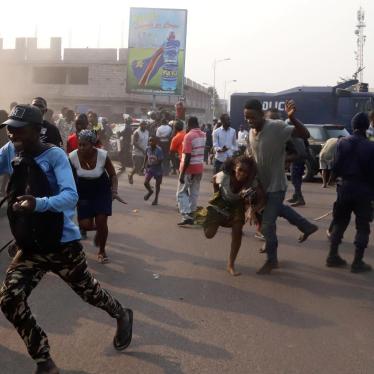Recent protests in support of embattled Ugandan opposition leader Robert Kyagulangi and the security forces’ heavy-handed response emphasize for me how little has changed in Uganda over the last decade.
Nine years ago today, I stood outside Mulago hospital’s emergency ward in Kampala as people injured in protests arrived on motorcycle taxis and trucks seeking treatment, mostly for gunshot wounds. By the end of the night, I sat and watched bodies being brought out to the morgue.
On September 10 and 11, 2009, Ugandan authorities sought to prevent a cultural leader of the Buganda ethnic group from traveling to Kayunga, a town near Kampala where National Youth Day festivities were planned. His supporters took to the streets, in some instances throwing stones and setting debris alight. The military and police beat demonstrators and quickly resorted to live ammunition, killing unarmed protesters and bystanders.
Sources at Mulago told me that all told they treated 88 victims related to the 2009 protests, the vast majority for gunshot wounds. More victims were taken to other hospitals. The government maintains that 27 people lost their lives, largely as a result of security forces’ “stray bullets.” Hospital records and local organizations put the death toll at more than 40. Regardless, the government never investigated or charged any security force members for the deaths.
In contrast to the lack of investigations into the security forces’ killings, the police response to the protesters’ alleged wrongdoing was overwhelming. Almost 850 people were charged with crimes, such as unlawful assembly and inciting violence. Eleven were prosecuted on terrorism charges, only to be acquitted after three years in a maximum-security prison. In a scathing judgment, a judge labeled the police investigation “incurably tainted, rendering the prosecution a nullity.”
Today, nine years later, victims and their families are left with the burdens of loss. “I have a permanent scar on my heart. I request those responsible in government to ensure that all those people who were involved in the killings are brought before courts and charged,” said one man whose son was killed in those protests.
But his plea has not been heard. Ugandan security forces have repeatedly resorted to lethal force against protesters and bystanders without clear justification over the last several years. Each time, the state pours massive resources into arresting citizens and stopping protests, even when they are peaceful, but none into ensuring the conduct of its forces remain within the law and human rights victims receive justice.









